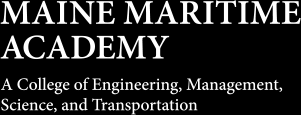Marine Transportation / Continuing Education
Polar Ops Up
New courses fill growing training needs for mariners.
Basic and Advanced Polar operations courses are gaining interest among MMA students and professional mariners due to potential job opportunities and escalating regulatory requirements.
“The courses are quickly being recognized as valuable training and requests for the classes are increasing,” says Capt. Ralph Pundt, Professor of Marine Transportation & Operations who developed the courses with aid in part from a U.S. Department of Homeland Security partner grant with the University of Alaska’s Arctic Domain Awareness Center.
“Having had many opportunities to deliver fuel to McMurdo Station and Terra Nova Bay in Antarctica, as well as to the U.S. Air Force base in Thule, Greenland, I am well aware of the dangers encountered when ships, ice and foul weather meet in very remote areas,” says Pundt.
“We have graduated 36 students with USCG/STCW Basic Polar Operations endorsements,” he says, “and are on track to fill the class with 24 students next spring.”
The basic course has also been completed by six professional mariners as part of MMA’s Continuing Education curriculum. Students learn about vessel operations and crew safety limitations in extreme polar conditions, as well as how to interpret ice charts and data that affect polar passage planning. Understanding the Polar Code, the role of the Polar Council, operating in environmentally sensitive and diverse ecosystems, are other topics covered.
Maine Maritime is the only academy to offer the course, which meets USCG and STCW requirements.
The advanced course is mandated through the Polar Code and was created by Pundt for masters and chief mates in charge of operations aboard vessels transiting the polar regions as of January 2018, and includes 2-3 days of classroom / simulation training. The knowledge-based portions of both the basic and advanced courses are completed online.
The United States Coast Guard ice breaker operations group is currently reviewing the courses and simulator to determine if the training would benefit their fleet operations training needs. “We expect to gain valuable feedback from their experience,” says Pundt.█
Photos: Billy R. Sims




Post Comment
Comments are moderated and will be reviewed prior to posting online. Please be aware that when you submit a comment, you agree to the following rules:
Maine Maritime Academy reserves the right to delete any comment that does not comply with these guidelines and is not responsible or liable in any way for comments posted by its users. If you have a message for the editor, please email mariner@mma.edu.
Campus Currents
View All >Read More
Read More
Read More